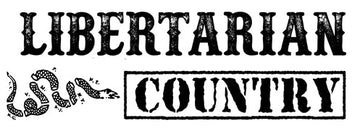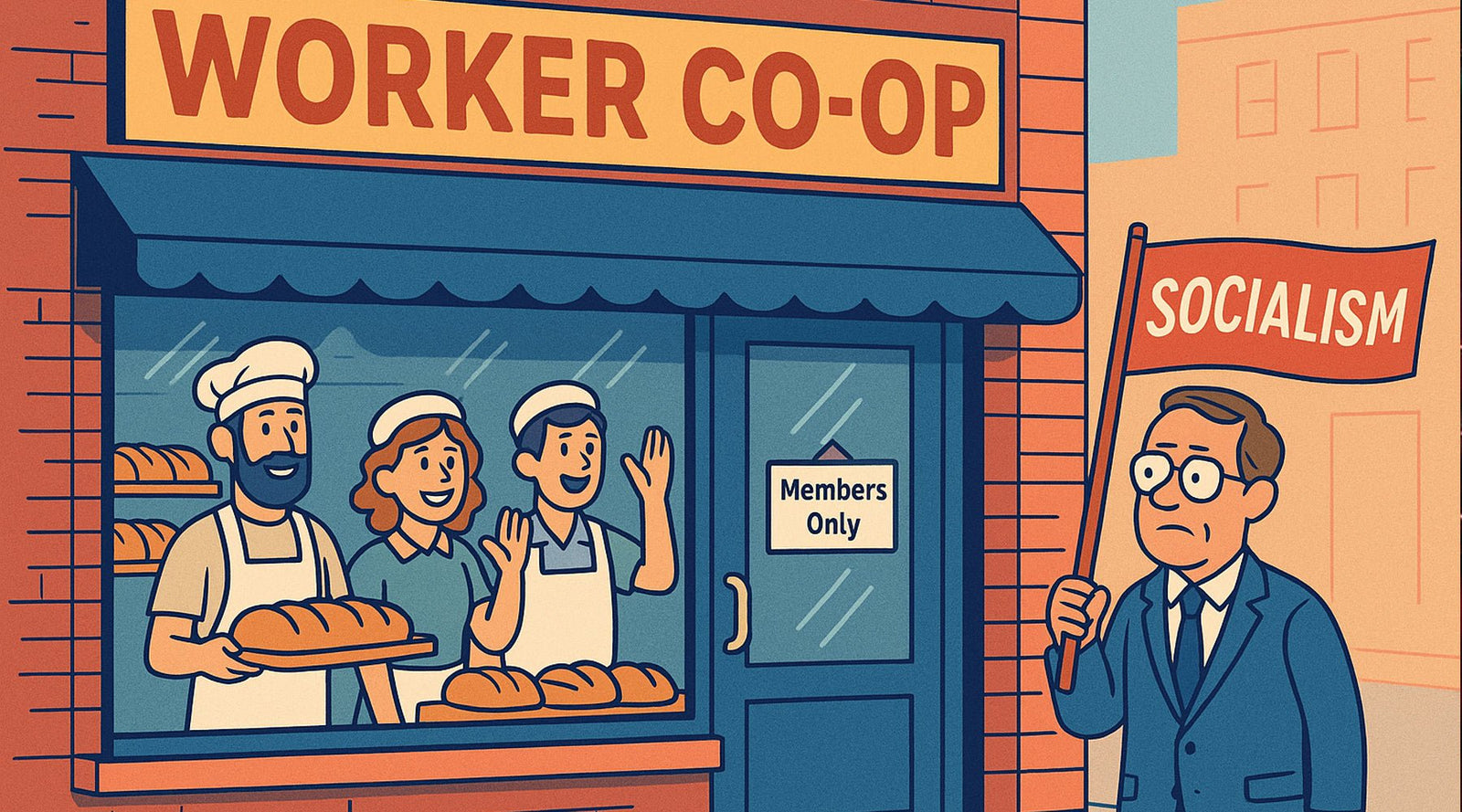For years, socialists have pointed to worker cooperatives as evidence that capitalism can be “overcome” or replaced. They claim that co-ops represent a radical departure from the capitalist model because they are collectively owned, democratically managed, and focused on community rather than profit maximization.
The implication is that worker-owned businesses are somehow an example of socialism breaking through within the belly of capitalism.
But here’s the reality: worker-owned cooperatives are not a rejection of capitalism — they are a product of it.
They operate within markets, rely on private property, and distribute profits among their owners. Far from disproving capitalism, they prove that capitalism allows freedom of association and ownership in whatever form people choose.
Let’s break this down, shall we?
What Is a Worker Cooperative?
A worker cooperative is a business owned and controlled by its workers. Members buy into the co-op, gain a share of ownership, and usually have voting rights in major business decisions.
Instead of traditional corporate hierarchy — where shareholders or founders own the business and hire managers to oversee employees — co-ops give each member-owner a say in governance and a share of the profits.
That might sound “radical,” but notice something:
-
The co-op has owners (the members).
-
The co-op has rules about who gets ownership and who doesn’t.
-
The co-op has profit and loss like any other business.
These are not socialist features. They are the very foundation of private property and market exchange.
Co-ops Operate in a Market Economy
Even the socialist websites promoting co-ops admit this outright: “While both worker co-ops and capitalist businesses operate in a market economy…”
That’s key. Co-ops buy inputs, sell products, compete for customers, and rely on revenue to survive. If they fail to attract buyers, they go bankrupt just like any conventional firm. No central planners are assigning them resources. No commissars redistributing their goods. No guaranteed survival.
In other words, they live or die by market forces. That is capitalism.
Ownership Is Still Private Property
The socialist argument tries to distinguish co-ops from “capitalism” by contrasting collective ownership with private ownership. But this is a sleight of hand.
-
In a corporation, shareholders own the firm.
-
In a co-op, workers own the firm.
-
In both cases, ownership is exclusive. Outsiders cannot vote, seize assets, or dictate how the business runs.
If democracy alone determined ownership, then anyone — customers, tourists, political parties — could walk into Alvarado Street Bakery or Mondragon and demand a vote.
Obviously, that’s not how it works. Only recognized members who hold ownership shares are entitled to a voice. That is private property rights in action.
Democracy Is a Management Tool, Not a Replacement for Property
Socialists like to emphasize the “democratic” nature of co-ops. And yes, many cooperatives use one-worker-one-vote systems to decide management issues. But democracy does not replace property rights — it presupposes them.
Democracy only functions within the boundaries of ownership. If you are a member-owner, you get a vote. If you are not, you don’t. That boundary is the definition of private property. Without it, democracy degenerates into mob rule, where outsiders can loot and vote themselves into others’ assets.
Co-ops are not proof that property is unnecessary. They are proof that property is indispensable.
Profit Still Matters
Another claim is that co-ops are not “profit-driven.” But this is misleading. Cooperatives must generate a surplus to reinvest, expand, or pay their member-owners. If a co-op runs at a loss indefinitely, it collapses just like any other business.
The real distinction is not whether profit matters, but who receives it. In a corporation, profits go to shareholders and dividends. In a co-op, profits are distributed among worker-owners. But in both models, profit is the lifeblood of survival. No profit, no business.
Co-ops Prove Capitalism’s Flexibility
Libertarians have no problem with co-ops. In fact, they illustrate the strength of capitalism: people are free to associate and structure businesses however they choose. If workers want to form a co-op, they are free to do so. If they prefer traditional firms with bosses, they are free to sign contracts. If they want to go solo, they are free to start their own business.
Capitalism allows all of these options to coexist. Socialism does not. In socialism, there is only one model: collective ownership enforced by the state. In capitalism, there is freedom: co-ops, corporations, sole proprietors, partnerships, and every other imaginable arrangement.
The Myth of “Radical Departure”
Socialist advocates like to frame co-ops as a “radical departure” from capitalism. But look closer. Co-ops:
-
Own property privately (by members).
-
Rely on contracts to define membership and participation.
-
Survive by generating profits in competitive markets.
Those are not socialist features — they are capitalist ones. The “radical” part is nothing more than branding.
Conclusion: Co-ops Confirm Capitalism, They Don’t Contradict It
Worker-owned cooperatives are fascinating, useful, and sometimes very successful. But they are not evidence against capitalism — they are evidence of it. Co-ops thrive precisely because private property and markets allow people to organize voluntarily.
When critics claim co-ops prove socialism, they are confusing ownership structure with economic system. A cooperative is simply one model within capitalism. It doesn’t abolish property or profit — it just distributes them differently.
The truth is simple: worker co-ops are still capitalism. They rely on property, contracts, profits, and markets — the very things socialism seeks to abolish. Far from being a radical break, co-ops prove that capitalism is flexible enough to accommodate any voluntary model people desire.



